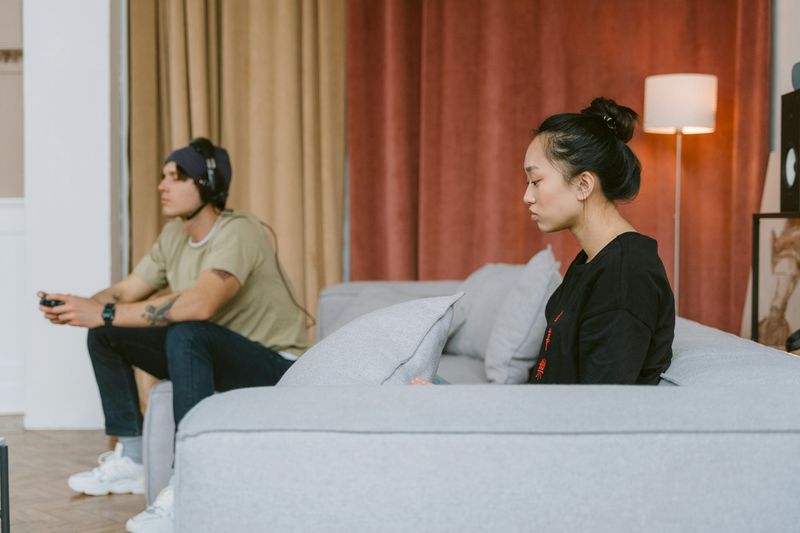10 Undeniable Signs Your Partner’s Love Has Turned into Jealousy

Love and jealousy can sometimes blur together, making it hard to tell when caring turns into controlling. A partner who constantly checks up on you or gets upset about your friendships might be crossing the line from affection to possessiveness. Recognizing these warning signs early can help you protect your emotional well-being and decide what’s best for your relationship.
1. They Need You to Constantly Check In

Your phone buzzes every hour with questions about your location, your company, and your activities. What started as sweet concern has morphed into exhausting surveillance that leaves you feeling watched rather than loved. Your partner expects detailed updates throughout the day, as if your life is a movie they need to monitor frame by frame.
This behavior reveals a fundamental lack of trust in your relationship. Instead of believing you’ll be faithful and honest, they assume the worst and feel compelled to track your every move.
Healthy relationships allow breathing room and independence without constant reporting. If you find yourself dreading these interrogations or lying to avoid conflict, that’s a red flag waving frantically.
2. They Demand Access to Your Phone

Passwords become bargaining chips in a relationship that should be built on mutual respect. Your partner insists on scrolling through your messages, claiming they just want to feel secure or that you shouldn’t have anything to hide. What they’re really doing is violating your personal boundaries under the disguise of transparency.
Privacy isn’t about keeping secrets—it’s about maintaining your sense of self within a partnership. Everyone deserves spaces that belong only to them, whether that’s a journal, a conversation with a friend, or their text messages.
When someone demands access to everything, they’re saying your autonomy matters less than their insecurity. True concern wouldn’t require reading your private conversations to feel confident in your loyalty.
3. They Try to Isolate You from Friends

Suddenly, your longtime friends are described as bad influences or time-wasters. Your partner makes subtle digs about how much you see them or acts hurt whenever you make plans without including them. Before you realize it, your social circle has shrunk dramatically, and you’re spending almost all your free time with just one person.
This isolation tactic is one of the most dangerous signs of possessiveness. By cutting you off from your support network, a jealous partner gains more control over your life and emotions.
Friends provide perspective, encouragement, and reality checks—things that threaten someone who wants to be your entire world. Healthy partners celebrate your friendships and encourage you to maintain connections outside the relationship.
4. They Downplay Your Achievements

You land a promotion or finish a challenging project, and instead of celebration, you’re met with silence or a quick subject change. Your partner can’t seem to share in your joy because your success triggers their own insecurities. They might minimize what you’ve accomplished or point out what you haven’t achieved yet.
This reaction stems from jealousy that makes them view your wins as their losses. Rather than being your biggest cheerleader, they feel threatened when you shine too brightly.
A loving partner would be genuinely excited about your growth and proud to stand beside someone doing well. When someone consistently dims your light, it’s because they’re afraid of being left in the shadows.
5. They Get Jealous of Compliments

A coworker mentions your great presentation skills, and your partner’s mood immediately sours. Compliments from others are treated like threats rather than the innocent observations they usually are. Your partner might become defensive, make sarcastic comments, or later criticize the very thing someone praised.
Their insecurity transforms every kind word into evidence that someone else finds you attractive or valuable. Instead of feeling secure in your relationship, they see competition everywhere and worry that positive attention from others will pull you away.
This jealousy reveals how little faith they have in your commitment. Someone confident in your love would smile when others notice your wonderful qualities, not sulk or lash out defensively.
6. They Accuse You of Flirting

You laugh at a cashier’s joke, and suddenly you’re accused of flirting. Normal, polite interactions get twisted into evidence of betrayal in your partner’s mind. They read romantic intention into your friendly demeanor, making you second-guess every smile or casual conversation you have with anyone.
This pattern shows how jealousy distorts reality and creates problems where none exist. Your partner’s insecurity makes them interpret innocent behavior as threatening, and they project their fears onto situations that don’t warrant suspicion.
Being friendly isn’t the same as being unfaithful, but jealousy can’t tell the difference. Walking through life accused of constant wrongdoing becomes exhausting and makes you question your own perceptions of normal social interaction.
7. They Criticize Your Appearance

That dress you love suddenly gets negative comments before a night out. Your partner suggests you change, criticizes your makeup, or makes remarks about how much attention your outfit might attract. These comments aren’t about fashion—they’re about controlling how visible and confident you feel in public.
By undermining your appearance, a jealous partner tries to keep you from feeling attractive to others or even to yourself. They may worry that if you look too good, someone else will notice and steal you away.
This controlling behavior disguises itself as preference or helpful feedback. Someone who truly loves you wants you to feel beautiful and confident, not insecure and second-guessing your choices before leaving the house.
8. They Guilt-Trip You for Having Fun Without Them

You have a wonderful time at a friend’s birthday party, and when you return home, your partner is cold or upset. They make comments about how you clearly don’t miss them or don’t need them anymore. Your joy becomes something you have to apologize for or hide.
This emotional manipulation aims to keep you tethered and dependent. By making you feel guilty for enjoying life without them, they train you to associate independence with wrongdoing.
Eventually, you might stop doing things you love just to avoid the aftermath. Healthy relationships allow both people to have fulfilling experiences apart and come back together to share stories, not to face punishment for having fun.
9. They Get Insecure About Your Past

Mentioning an ex-partner or a longtime friend triggers an immediate mood shift. Your partner asks probing questions, makes jealous comments, or gets visibly upset about relationships that existed long before you met them. They can’t accept that your past helped shape who you are today.
This jealousy extends to people and experiences they had no part in, revealing deep insecurity about their place in your life. They may worry they don’t measure up to previous relationships or fear that old connections could reignite.
Rather than trusting your choice to be with them now, they obsess over your history. Someone secure in your relationship understands that your past is just that—past—and doesn’t pose a threat to your present commitment.
10. They Make You Walk on Eggshells

You’ve started carefully monitoring your words and actions, always calculating what might trigger an argument or jealous outburst. The relationship feels less like a partnership and more like navigating a minefield where one wrong step causes an explosion. This constant tension means you’re living in survival mode rather than thriving.
When jealousy controls a relationship, the jealous partner holds all the power, and you become responsible for managing their emotions. You might avoid mentioning certain topics, cancel plans preemptively, or change your behavior to prevent conflict.
This isn’t love—it’s control wrapped in insecurity. Relationships should feel safe and comfortable, not like performances where you’re always one mistake away from punishment or drama.

Comments
Loading…